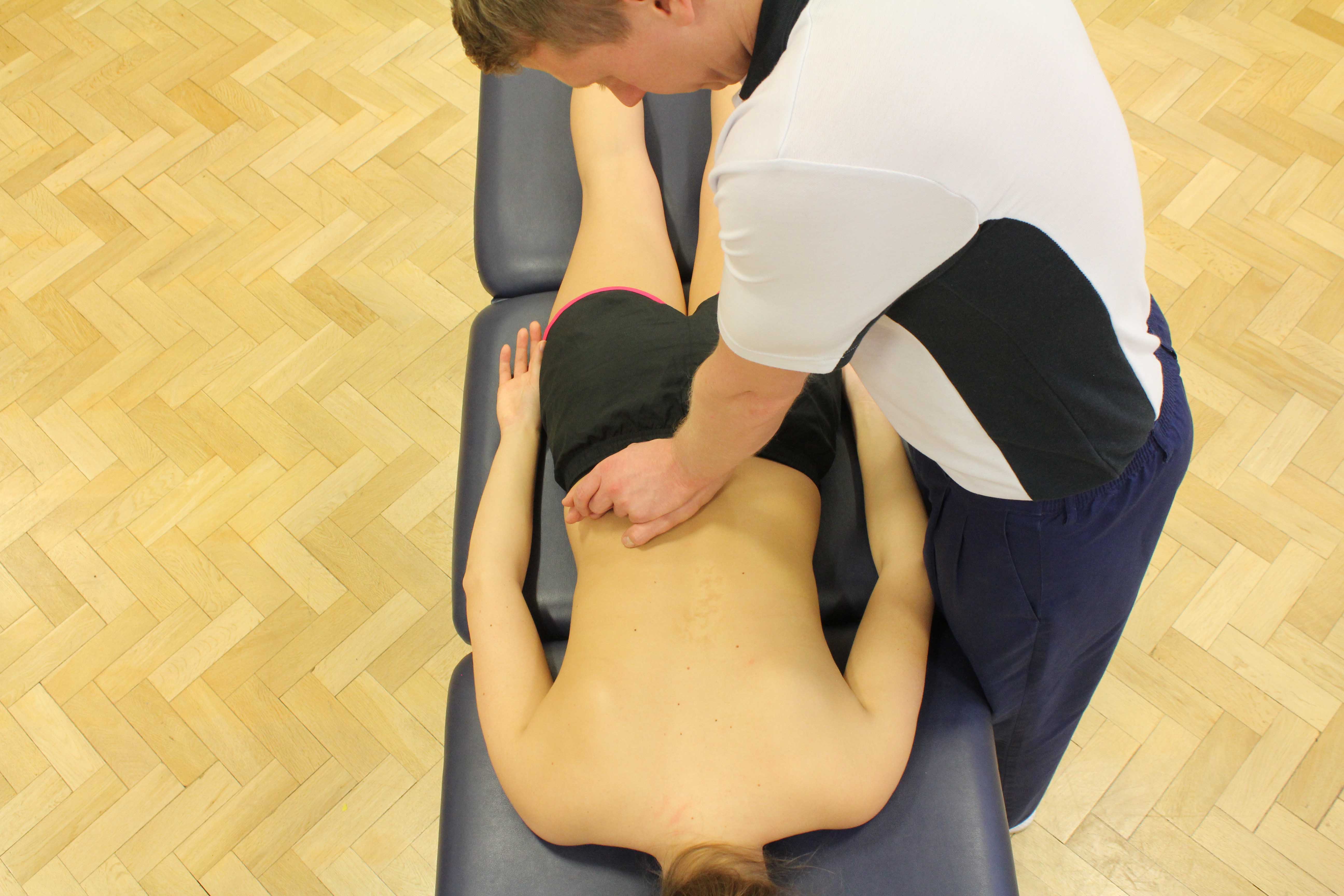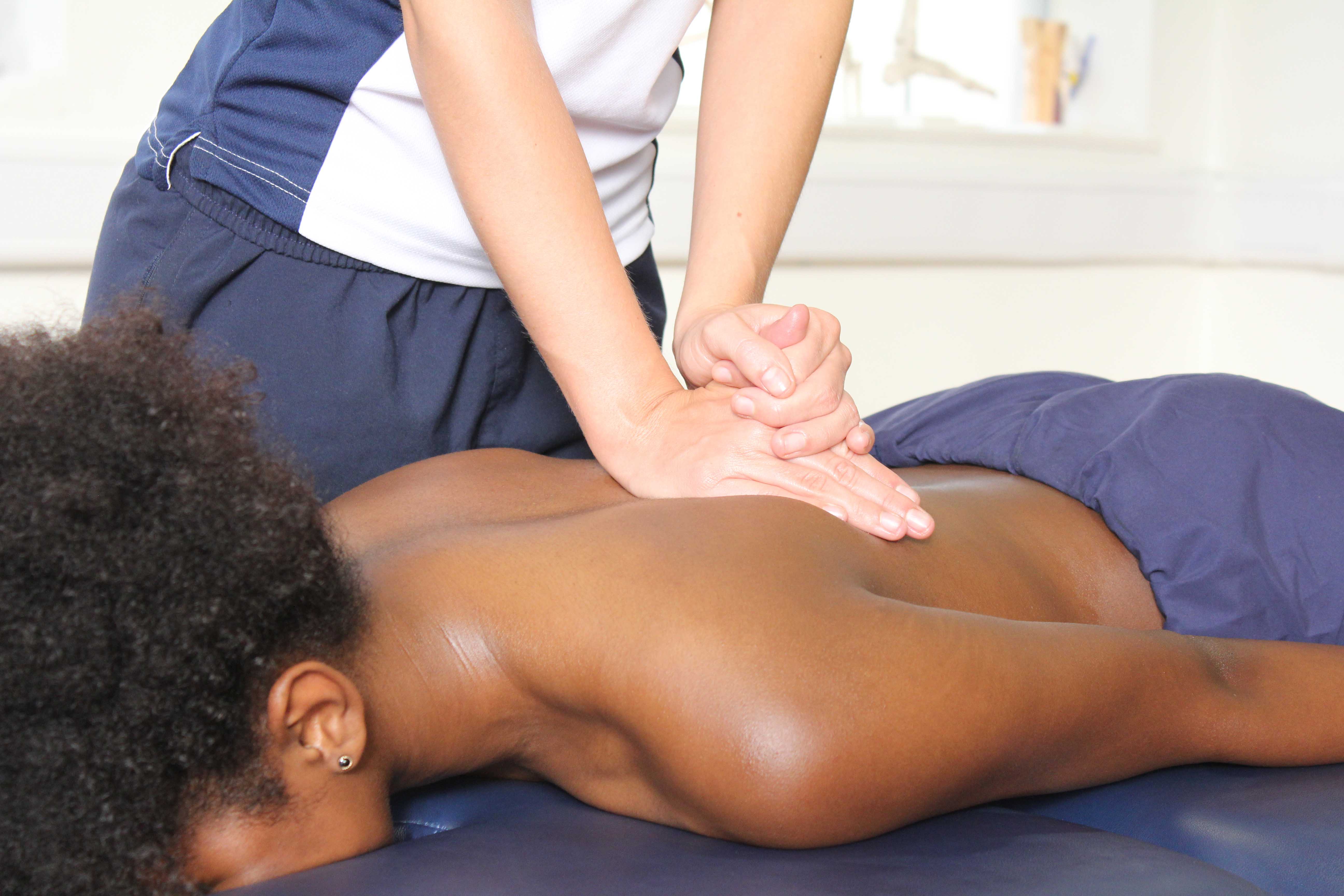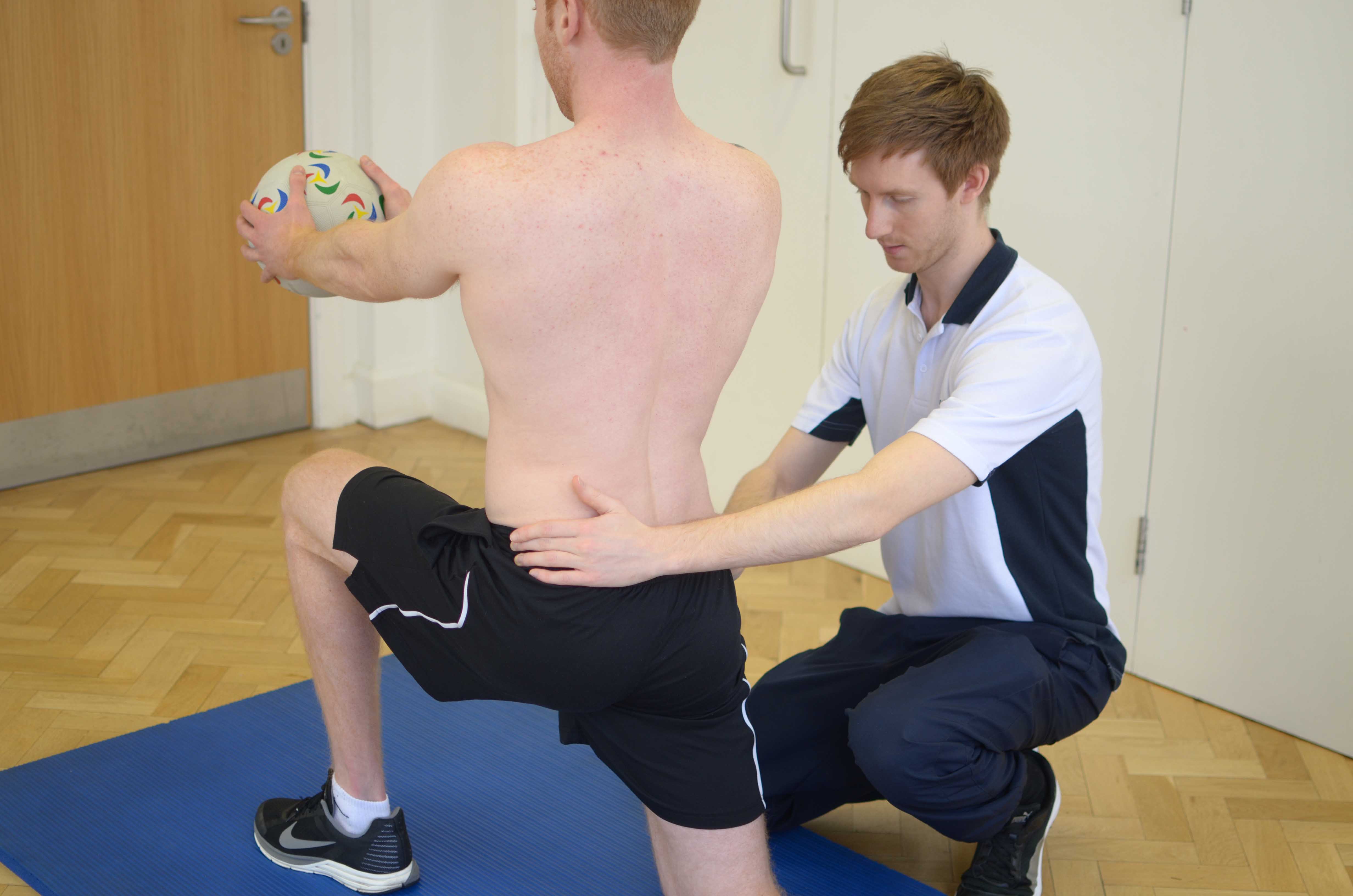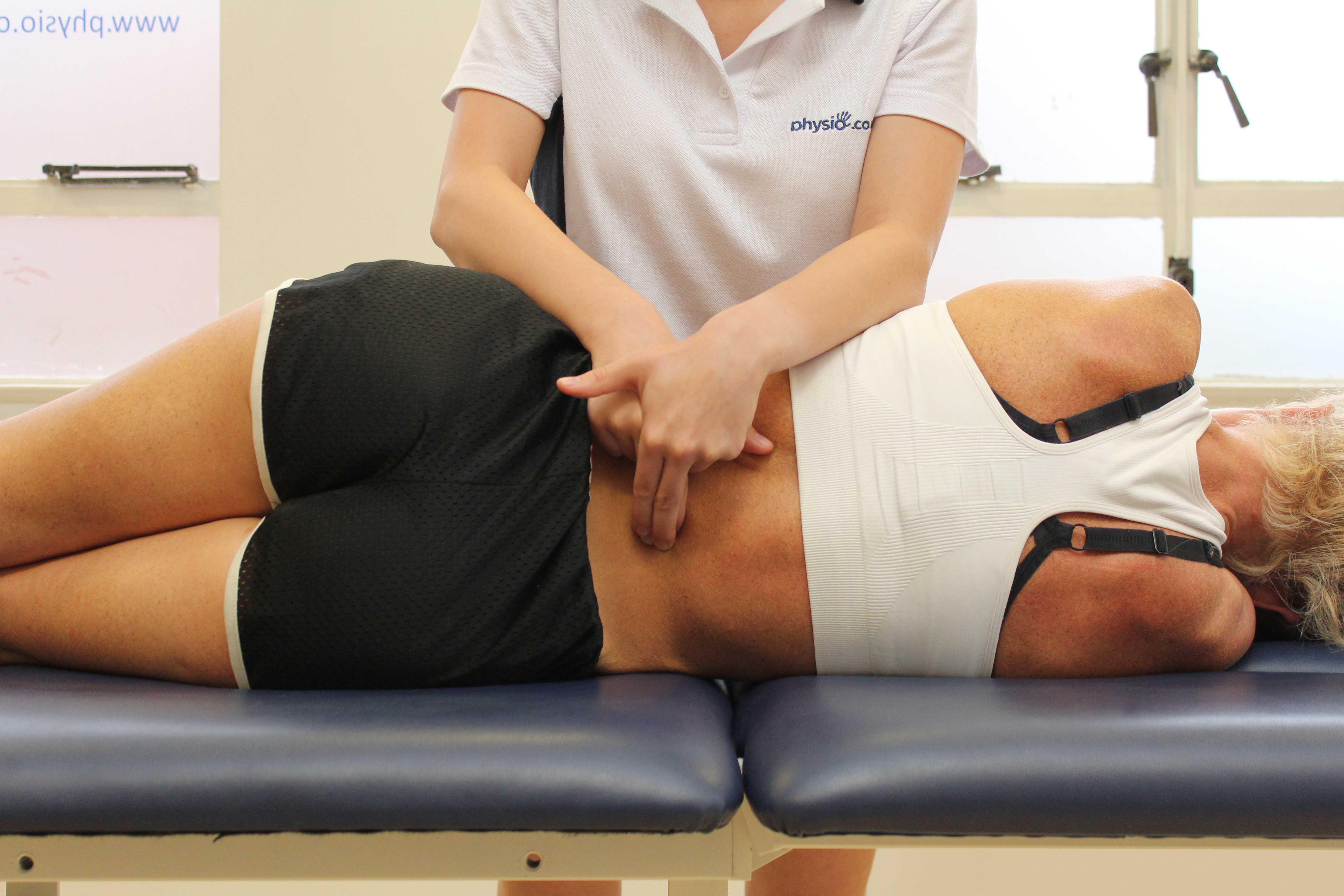What is a prolapsed disc?
A prolapsed, or ‘slipped disc’ occurs when a disc in the lower back compresses a nerve causing pain. The vertebrae in the spine have discs of tissue that sit between them. The discs are located next to the nerves in the spine so when a disc becomes damaged it compresses on the nerves, causing pain.
 Above: Mobilisations of the vertebrea in the lower back by experienced therapist
Above: Mobilisations of the vertebrea in the lower back by experienced therapistWhat causes a prolapsed disc?
The inside of a disc is soft and is surrounded by a tough exterior. A prolapsed disc occurs when the tough exterior is damaged and the soft tissue protrudes through the damage. It is this protrusion that compresses the nerve and causes pain. The damage to the exterior can be caused by:
- Wear and tear
- Trauma, such as lifting a heavy load with a bent back
- Repetitive flexing (bending) of the lower back
 Above: Mobilisations of the vertebrea in the lower back by experienced therapist
Above: Mobilisations of the vertebrea in the lower back by experienced therapistWhat are the symptoms of a prolapsed disc?
A prolapsed disc compresses the nerves in the lower spine. The nerves in the lower spine innervate muscles and structures in the legs so symptoms can also be felt in the legs. Symptoms can include:
- Pain, especially when flexing (bending) the spine
- Pain in the legs - sciatica
- Muscle weakness
- Pins and needles
- Pain inhibited movement
- Numbness
 Above: Progressive strengthening exercises for the lower back supervised by specialist MSK physiotherapist
Above: Progressive strengthening exercises for the lower back supervised by specialist MSK physiotherapistPhysiotherapy for a prolapsed disc
Physiotherapy is very beneficial for a prolapsed disc and can relieve symptoms. At Physio.co.uk our physiotherapists will assess and treat you as an individual. Treatment may include:
- Heat therapy
- Electrotherapy
- Mobilisations
- Range of movement exercises
- Stretching exercises
- Strengthening exercises
- Postural advice and exercises
- Advice to prevent future reoccurrence
Can a prolapsed disc cause any long-term effects?
Physiotherapy generally provides a successful outcome for most patients. However injections or surgery would be considered for patients that are still suffering pain even after physiotherapy intervention.
 Above: Trigger point massage of the lower back muscles by specialist MSK therapist
Above: Trigger point massage of the lower back muscles by specialist MSK therapistTo arrange an assessment with Physio.co.uk please contact us or call 0330 088 7800.

 0330 088 7800
0330 088 7800

































